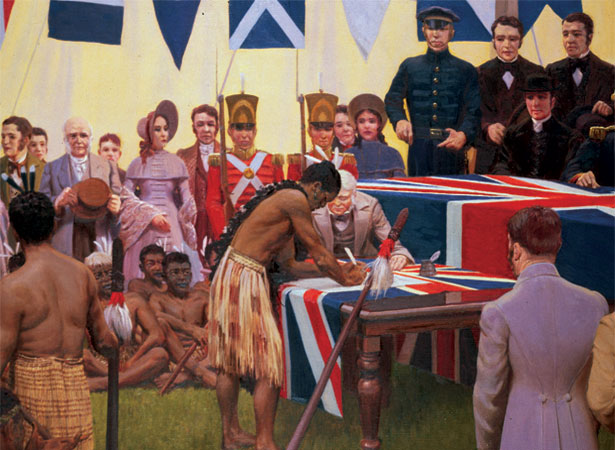 |
| The signing of the Treaty of Waitangi Credit: Painting of the treaty signing by Marcus King, 1938 (Alexander Turnbull Library, G-821-2) https://nzhistory.govt.nz/the-treaty-of-waitangi-is-signed |
Treaty of Waitangi Māori and English Version
Differences between the British and Māori translations
In the British (English) version of the Treaty of Waitangi, it is said that Māori will give up complete sovereignty to Britain. However, in the Māori version, it is said that the Māori will only give up sovereignty, not complete sovereignty. Another difference is that in the English version, it is said that Māori is under the complete control of the British government, unlike the Māori version, where Queen Victoria became the sovereign of New Zealand and Māori chiefs still had control of their tribes. Māori thought that they can control their tribes, but they weren’t.
In the Māori version, taonga (treasured possession) and protection of language and culture are included, however, in the English version, it isn’t written. Another difference is that the British has the right to buy Māori land offered in sale, but in the Māori version, the Māori had to first offer it to the British crown, if they want to sell their land, with an agreed price; the land would be sold to someone else then if the British crown did not agree to the price.
In the Māori version of the Treaty, it was told that the British will protect Māori, but in the English version, it wasn’t written in the treaty.
In my opinion, I think the Treaty is different because the British want to be superior over Māori and gain profits out of the Treaty, meaning Māori will get less in return.

